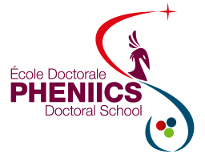Orateur
Mme
Amélie Rouchon
(Cea Saclay)
Description
Traditional neutron noise analysis addresses the description of small time-dependent flux fluctuations induced by small global or local periodic perturbations of the macroscopic cross sections, which may occur in nuclear reactors due to stochastic density fluctuations of the coolant, to vibrations of fuel elements, control rods, or any other structures in the core. Neutron noise techniques are widely used by the nuclear industry for non-invasive general monitoring, control and detection of anomalies in nuclear power plants. They are also applied to the measurement of the properties of the coolant, such as speed and void fraction.
In power reactors, ex-core and in-core detectors can be used to monitor neutron noise with the aim of detecting possible anomalies and taking the necessary measures for continuous safe power production. Noise analysis relies upon the possibility of numerically simulating the behaviour of neutron noise and computing the changes in the neutron field produced by different representative sources of noise in reactor cores.
The general noise equations are obtained by assuming small perturbations around a steady state in the neutron field and by subsequently taking the Fourier transform in the frequency domain. The analysis is performed based on the neutron kinetic equations including the coupling with neutron precursors. The outcome of the Fourier transform analysis is a fixed-source equation for the perturbed neutron field, which can then be solved so as to predict noise measurements at detector locations. For each frequency, the neutron field is a complex function having an intensity and a phase.
The objective of this thesis is to develop techniques for neutron noise analysis and apply them to thermal and fast reactors. The implementation of these techniques was done using the new generation code APOLLO3®, developed at CEA, for deterministic transport and diffusion calculations. A new Monte Carlo algorithm that solves the transport equations for the neutron noise in the frequency domain has been developed. This new algorithm should be implemented in the reference Monte Carlo code TRIPOLI-4® developed at CEA. In addition, a one-dimension vibration model has been developed in order to simulate a periodic vibration of a fuel pin and to determine the neutron noise generated by this perturbation.
Auteur principal
Mme
Amélie Rouchon
(Cea Saclay)



